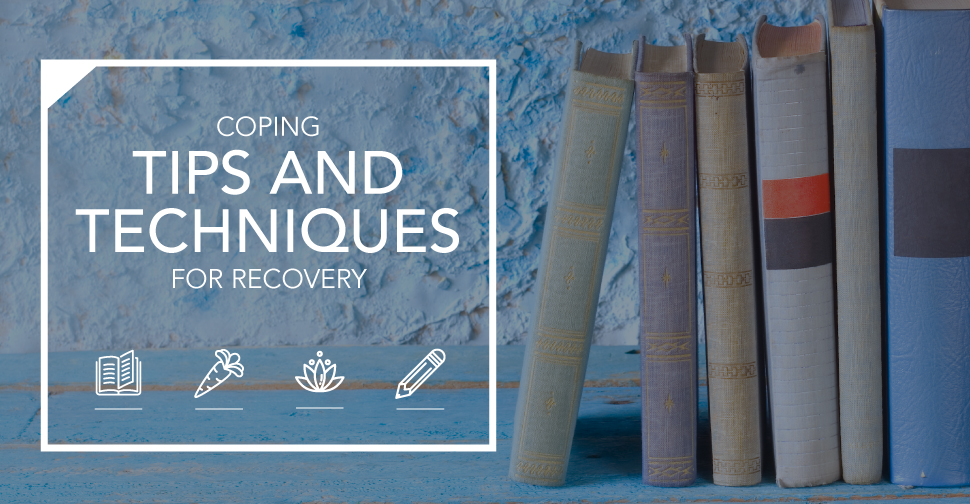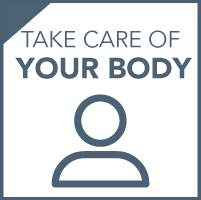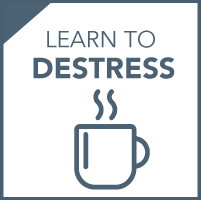
The first couple weeks of sobriety may be accompanied by unique hurdles and pitfalls that are centered around living a new, clean and healthy lifestyle. For many, it is continuing to live this sober lifestyle after treatment and abiding by the decision to quit, that becomes the challenge. Recovery may be harder for a person early within their sobriety, however, struggles may crop up at any point during your recovery journey.
This set of coping skills is designed for maintaining continued sobriety, both during the onset and duration of your recovery. It focuses on things that can both help to distract you and fight off stress, cravings, and thoughts of using again.
Know Your Triggers
 Preparedness can be vital in maintaining sobriety. It helps to think about stress and cravings before they come up, and have an idea of what you need to do to help yourself stay focused and balanced within your recovery. This way when they arise, you’ll be equipped to handle them.
Preparedness can be vital in maintaining sobriety. It helps to think about stress and cravings before they come up, and have an idea of what you need to do to help yourself stay focused and balanced within your recovery. This way when they arise, you’ll be equipped to handle them.
One of the most proactive things you can do, is to know and understand what triggers an urge to use. Relapse triggers and warning signs are things that bring up memories of using and likely cause cravings. They are a normal and natural part of this process, and will generally fade with time, however, this does not mean that you can let your guard down—you should always be prepared to combat triggers at any point during your recovery journey.
What did you associate with using? Music? A place? Certain people? Some things should be avoided altogether during sobriety, such as going to bars, however, other triggers are more specific to each individual.
For this reason, you need to spend some time thinking about your life and the way you react to it. It may be helpful to write down your observations, so that you can develop a greater awareness of the patterns, emotions, or reactions that may become damaging.
Plan ahead—contemplate what you will do when these feelings arise, and how you will handle them. More importantly, write the plan out, so that you are more likely to remember it in way that lets you successfully execute it. Specifically, jot down what your relapse triggers or warning signs are, and what to do about them when the time comes.
Seek Out Social Support
 Social support means looking to others for help and encouragement during difficult times. As they say, everyone needs someone to talk to. Figure out who it is you would go to when you needed a sympathetic ear, whether it be someone to talk you through a difficult moment, or just a person that can help to take your mind off of things and reaffirm your purpose. All of these things can offer recovery support.
Social support means looking to others for help and encouragement during difficult times. As they say, everyone needs someone to talk to. Figure out who it is you would go to when you needed a sympathetic ear, whether it be someone to talk you through a difficult moment, or just a person that can help to take your mind off of things and reaffirm your purpose. All of these things can offer recovery support.
It’s often helpful to consider it like this:
- Who are the professionals you should call during an emergency? These people may be counselors, a rehabilitation facility, or a crisis line.
- Who are the people in the rehab community you could turn to during these difficulties? While attending Alcoholics Anonymous (AA) or other 12-step programs and having a sponsor is not a guarantee of sobriety, for many, it does significantly increase the odds of maintaining their sobriety in the long-term.
- Who are the friends and family members you would be willing to talk to about these problems, even if it was about thoughts of relapse? It is within your right to pick and choose who you let in. Selecting people that you would be reasonably comfortable with, that may offer you insight, support, or hope, are all individuals worth considering.
- Finally, who are the people you could talk to just to get your mind off the thoughts in your head? This does not mean talking about relapse, stress, or anything that is specific to your addiction—though these things might come up, and in some cases, you might talk to the same people about these matters. Instead, these are people that you can exchange ideas with, and talk about common interests or things that make you feel happy, inspired, or accomplished.
This may include talking about football, your kids, the weather, any goals or dreams you’ve established, or any other aspect of your life. Many times, when a person suffers from an addiction, they feel alienated from those around them. These conversations give you a chance to reestablish yourself outside of the world of your addiction, and within the perimeters of everyday life. Interacting with positive people can be a great distraction technique, even if they do not realize that they are being one.
Social support has been shown to increase the success of a person’s recovery, and reduce instances of relapse, especially in newly recovered individuals.
 Taking Care Of Your Body Is Vital
Taking Care Of Your Body Is Vital
This is both preventative care and maintenance. Preventing a craving is many times more beneficial than coping with one. Your mind and body are forever linked—if one is taken care of, then the other responds positively, growing towards a more balanced state, thus preserving your recovery.
If you take care of your body, your mind often follows suit with increased mental health, a greater ability to cope with stress, and a reduced chance of developing the cravings that could lead to relapse.
Oftentimes, a person will experience a craving when their body is under some measure of physical duress, such as being hungry, tired, or keyed up. These things can lead a person to crave drugs or alcohol as a means to self-medicate and reduce these symptoms.
These healthy behaviors include eating properly, getting enough sleep each night, regular exercise, taking medications as prescribed, proper hygiene, and even meditation, or other relaxation techniques. All of these are important life skills that will help to support physical wellness, balance your mental health, and strengthen the foundation of your recovery that you worked so very hard to obtain.
 Learn To De-Stress
Learn To De-Stress
It is helpful in the long run to admit that life will always involve a measure of stress. This is not a defeatist mindset, rather it allows you to witness, accept, adapt, and overcome the rigors of your life, so that you may grow in strength and positivity.
Sometimes you cannot avoid every form of stress, due to this, learning how to cope and persevere is vital, as stress, if left unchecked can fuel substance abuse. Here is a list of some coping techniques and healthful practices that may be useful towards combating stress:
- Meditate or try yoga, Tai Chi, massage, or other alternative therapies that relieve stress
- Get out into nature, examples include taking a walk or gardening
- Create a gratitude list (write down what you’re thankful for)
- Look up inspirational quotes
- Write down your goals and the steps you are going to take to accomplish them
- Compose a list of your strengths
- Replace negative thoughts with positive ones
- Journal
- Immerse yourself in creative endeavors like drawing, painting, or crafting
- Take a bath
- Read
- Spend time with family and friends
This list is certainly not exhaustive. There are many more activities out there that encourage wellness and combat stress. Take time to reinvest in ones that you let slip away, or learn some new ones, so that you can develop your own special coping skills.
One Thing To Remember
AA has many slogans that have greatly impacted many people, one of which is, “This too shall pass.” Though AA might not be for everyone, the truth of this statement can resonate in many walks of life. No matter how overwhelming a moment may seem, you possess the inner strength and resolve to see it through.
Stressful things will happen in your life. Sad things will occur. You will likely contend with cravings and thoughts of returning to substance abuse. These things do not mean you have to use again. Against all of these things you can stand strong, remembering you will have the chance to experience positive things that are made possible by your sobriety.
If you surround yourself with a supportive network of people and practice good coping skills for a sober lifestyle, your odds of relapse go down dramatically.
Sometimes, relapse does happen—this does not mean that you’ve failed, or that you’ll never be able to maintain sobriety—keep in mind, as you again work towards sobriety, you have a greater arsenal of tools and skills to draw upon that can foster your success. Reacquaint yourself with your recovery goals, remind yourself why sobriety is important, and let these things guide you.
We Can Help You Protect Your Sobriety
 Recovery is a path that may have ups and downs, but it is one that is manageable, especially with the right support and guidance. If, however, you feel it is getting too difficult to manage on your own, or if you’ve relapsed, please contact us at DrugRehab.org. We can help you find treatment that will help you to regain a sober and healthy life.
Recovery is a path that may have ups and downs, but it is one that is manageable, especially with the right support and guidance. If, however, you feel it is getting too difficult to manage on your own, or if you’ve relapsed, please contact us at DrugRehab.org. We can help you find treatment that will help you to regain a sober and healthy life.
Sources
Mayo Clinic – Drug Addiction: Coping and Support
National Institute on Drug Abuse – A Cognitive-Behavioral Approach: Treating Cocaine Addiction
Substance Abuse and Mental Health Services Administration – Recovery and Recovery Support
National Institute on Drug Abuse – NIDA Community Drug Alert Bulletin – Stress & Substance Abuse

